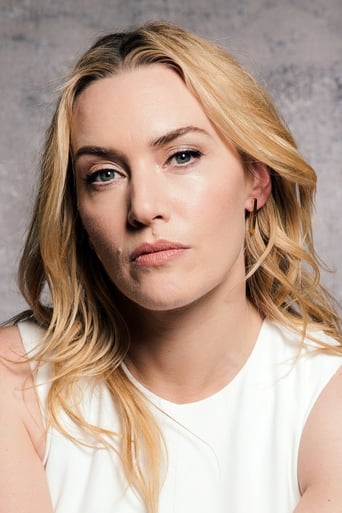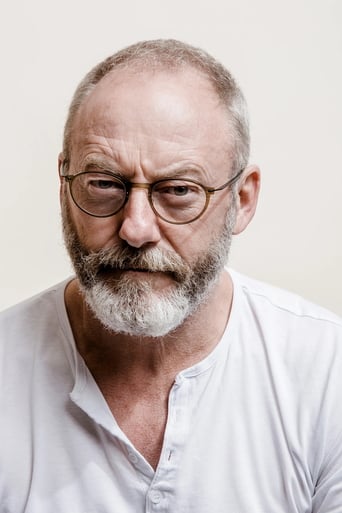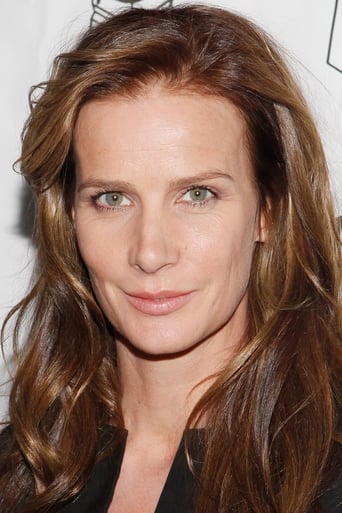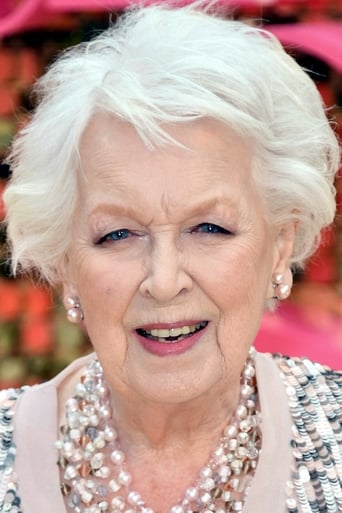Alicia
I love this movie so much
Hottoceame
The Age of Commercialism
CrawlerChunky
In truth, there is barely enough story here to make a film.
Zandra
The movie turns out to be a little better than the average. Starting from a romantic formula often seen in the cinema, it ends in the most predictable (and somewhat bland) way.
miss_lady_ice-853-608700
Jude The Obscure is Thomas Hardy's final novel, and his bleakest. It doesn't seem an obvious choice for cinema, hence why it failed at the box office.An air of gloom hangs over the whole proceedings. The story is a little like Tess- a man's chance at love is destroyed by a woman from his past. Jude (Christopher Eccleston) is the man in question- an ambitious country boy whose desire is to become a student at Christminster (Hardy's made-up name for Oxford). He moves to Christminster and falls in love with his clever cousin Sue Brideshead (Kate Winslet). Unfortunately he is already married- to loose country girl Arabella (Rachel Griffiths), who keeps popping up and ruining Jude's chance at happiness. The climax of the film is one of the most tragic and horrific things you will see in a long time.The film is quite well done. It is a bit graphic (this is Michael Winterbottom after all) and anachronistic in places, but there are enough tinges of Hardy to make it a costume drama. He certainly hasn't butchered it as he butchered Tess in his film Trishna.The problem of the film is that Jude is a bit of a ninny, who doesn't seem to have the ruthlessness or the cleverness needed to get into the academic elite and constantly runs back to Arabella. The incestuous aspect is also very off-putting. One feels sorry for Jude and Sue but one can never feel entirely comfortable with their relationship.Another problem, at least adaptation-wise, is that Arabella, who is a horrible sadist in the book from what I've heard, is merely a nuisance here. Perhaps Winterbottom thought that might be too much misery for people but it does mean that the film ends abruptly.Acting-wise, everything is fine. Eccleston convinces as a country boy, although his Northern accent does come out at times. Winslet does well as spirited Sue Brideshead, similar to Rose in Titanic so not much of a stretch for her.EDIT: Having now read the novel- not my favourite Hardy novel but a powerful novel nonetheless- the film gets the sexuality right. Everything that Hardy couldn't show, this film shows, so for those who complain that the film has too much nudity, this is actually quite true to the novel- particularly as none of it is very erotic. Jude's weakness for the flesh is almost animalistic.Leaving aside the hot and steamy, we have that whole spiritual dimension. That part of the novel is quite hard to translate and it doesn't really come through in this film. Jude is meant to be too noble for this world, hindered by his fleshy desires.And the film really does let Arabella off too lightly. In this, she's a typical country wench- a tart with not much of a heart. However in the book, she's not only a tart with no heart, she's a proper butcher, cruel to the point of sadism.
IridescentTranquility
How to summarise Jude? They say that in the late Victorian era there was a school of thought that almost glorified the state of childhood, believing it to be a perfect time in a person's life when innocence reigned, but I don't believe Thomas Hardy followed this line of thinking. No matter how young, both Jude the father and Jude the son seem weighed down by doom and misery in this film.I think this film fell under the category of "independent film", which is just as well. Following the Thomas Hardy convention whereby nothing can end happily, Jude ultimately ends with a miserable mood, but in a sense this is perfect. Although it's not the sort of film anyone would want to watch on a "down" day, I'm sure that - had this film been given the Hollywood treatment, the storyline would have been mercilessly rearranged to have a loving happy ending. The problem is, if that happened, it wouldn't be Hardy.There is something stark about the opening of the film - the scratchy music, the loneliness of the solitary young Jude, the clattering noise of the bird-scarer and yet, combined with the black-and-white filming, it evokes the appropriate mood for the film so easily and so early on. In amongst the winter scenes and the aerial shots that show only a tiny bit of movement in an otherwise still landscape, Jude and Arabella's wedding is possibly the busiest, most colourful scene in the whole film. Of course, there are also many interesting social and sometimes political issues raised, partly because of the time in which the film is set. Had the story been moved forward a hundred years, there would be nothing remarkable about Sue attending lectures, smoking cigarettes, drinking beer in the pub, visiting Jude without a chaperone. There would be nothing surprising about being educated when you had a job - like Jude's - that didn't require it. But Jude and Sue are tragic in a way - both impulsive people in a world and a time when a commitment like marriage was not to be taken lightly.There are many bad omens in the film - Aunt Drusilla remarking that "The Fawleys were not meant for marrying" - and the particular tragedy of Jude's character is the way he rushes into things only to regret them later. Though Jude is tragic, his cousin and partner Sue is equally blighted - to watch her change during the film from an irreverent, sparky, impertinent, independent single woman into a tortured, guilty (in her own eyes) shadow of her former self is heartbreaking. Although in some ways women's lives and opportunities were limited in various ways in the nineteenth century, as a female with a job, no husband and no parents or other family, she did have quite a lot of freedom. Oddly, Jude's wife Arabella is not so different from Sue - she is as forward and daring physically as Sue is intellectually. During their marriage, she and Jude almost reverse roles - she goes out to kill a pig single-handedly when he is too sensitive to do so. There is an interesting contrast between Jude's sex scenes with Arabella and the one he has with Sue. The wedding night with Arabella is warmly lit and cosy, whereas the scene with Sue is stark, almost grey, with a cold feeling and yet in some ways Sue and Jude are more necessary to each other than Arabella and Jude ever were. On the costume side I note that - as with the more recent Kate Winslet film Finding Neverland - the costumes don't look like fashion plates, they look like real clothes (occasionally none too clean but when you take into account how time-consuming and labour-intensive it must have been to wash them, it's hardly surprising). It seems strange now that Kate must only have been twenty or twenty-one when this film was made - in her first scene she looks mature whereas in others she seems very, very young.This isn't the easiest film to watch - there are a few sections I almost always fast-forward - but that is not to say it's not good. Every time I watch it, a bit of me wants things to end happily, but - as I said before - that just wouldn't be Hardy.
spaamie1
I disliked the characterization of Sue in this film. Sue was supposed to be "higher" than Arabella, spiritual and intellectual. To see her smoking a strange man's cigarette and carousing with the boys in the bar was a bit of a shock. And the bit about "your child killed my children" was not at all like Sue. At no time in the book did she attach blame to anyone but herself. Her ultimate neurosis was her complete self-centeredness. She led poor Jude and Fillotson a merry dance and ended up ultimately rejecting both of them. That's one of the reason I detest this character, in the book as well as the movie. Nothing matters to her but herself. You even get the sense in the book that the death of the children only mattered in its reflection on herself.The movie is also missing the ultimate irony, Arabella's second "seduction" of Jude and his eventual death in her home, in her bed. Christopher Eccleston is wonderful as a consumptive; they should have given him a lovely death scene instead of leaving him standing in the snow.Kate Winslet is a beautiful Sue, but the characterization is a bit too tough and brazen. Christopher Eccleston was simply sublime. And did anyone else notice David Tennant in the bar? Two Doctors in the same room... :)
newradical336
did anyone notice as I did the use of Edinburgh for the town of, I think Christchurch, or some made up place where Jude goes to pursue university? Being home that I miss often i instantly recognised most of the scenes there as being filmed on the Royal Mile in the old town and directly around the square in front of St Giles. Also all the churchyard scenes, including their children's graves was in Greyfriars Churchyard nearby. i found it interseting why theyd give it a false name, furthered by the fact that in the scene in which Jude follows Sue into a public meeting in a hall the man speaking almost seems to be discussing the divide between "the new town" and "the old" which anyone who's visited Edinburgh will be well aware almost splits the town in two, the rich and the poor. the new town being visible in the film in scenes such as following the children's death and Sue's departure Jude follows her to an anonymous house before she returns to the church, I think its just below Queen Street. Where was that supposed to be by the way? Just happened to catch the film while flicking last night and thought it was ace, harrowing, but rewarding nonehteless.






